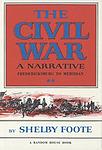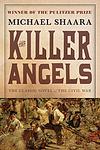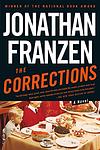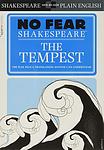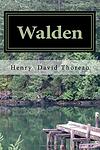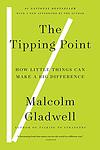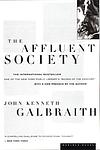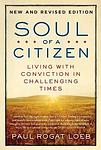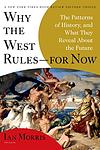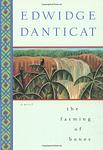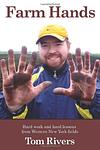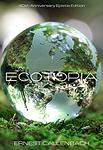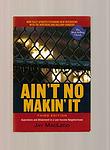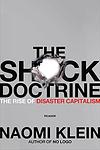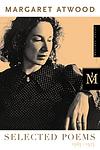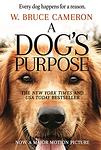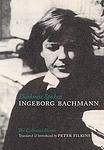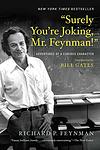48 Good Books
This is one of the 284 lists we use to generate our main The Greatest Books list.
-
The Civil War by Shelby Foote
This comprehensive three-volume series provides an in-depth and detailed narrative of the American Civil War. It encompasses the political, social, and military aspects of the war, offering a balanced view of both the Union and Confederate sides. The series also delves into the personal experiences of key figures, including generals and soldiers, as well as civilians affected by the war. This work is known for its meticulous research, vivid descriptions, and engaging storytelling style.
-
The Killer Angels by Michael Shaara
"The Killer Angels" is a historical novel that provides a detailed account of the Battle of Gettysburg during the American Civil War. Told from the perspectives of several key figures, including Generals Robert E. Lee and James Longstreet on the Confederate side, and Colonel Joshua Chamberlain on the Union side, the book explores the motivations, thoughts, and struggles of these men as they navigate the brutal realities of war. The narrative vividly brings to life the events, decisions, and human drama that culminated in the pivotal battle, shedding light on the personal and political complexities of this critical period in American history.
-
Crime and Punishment by Fyodor Dostoevsky
A young, impoverished former student in Saint Petersburg, Russia, formulates a plan to kill an unscrupulous pawnbroker to redistribute her wealth among the needy. However, after carrying out the act, he is consumed by guilt and paranoia, leading to a psychological battle within himself. As he grapples with his actions, he also navigates complex relationships with a variety of characters, including a virtuous prostitute, his sister, and a relentless detective. The narrative explores themes of morality, redemption, and the psychological impacts of crime.
-
Giants in the Earth by Ole Edvart Rolvaag
"Giants in the Earth" is a historical novel that chronicles the story of a Norwegian pioneer family's struggles with the land and the elements of the Dakota Territory as they try to make a new life in America. It is a profound and accurate depiction of the trials, tribulations, successes, and failures of pioneer life, emphasizing the harsh realities of adapting to a new environment. The novel explores themes of man versus nature, cultural displacement, and the pursuit of the American Dream.
-
Nectar in a Sieve by Kamala Markandaya
"Nectar in a Sieve" is a tale of an Indian peasant woman named Rukmani who endures the hardships of rural poverty, natural disasters, and personal tragedy, while trying to raise her children and maintain her marriage. The book explores themes of love, hope, and the strength of the human spirit against the backdrop of a rapidly changing India. Despite the constant struggles, Rukmani never loses her faith and hope, symbolizing the resilience and strength of ordinary people in the face of adversity.
-
The Good Earth by Pearl S. Buck
This novel tells the story of a poor farmer in rural China, who struggles to survive and prosper. Over time, he manages to build a life for himself and his family, eventually becoming a wealthy landowner. However, his newfound wealth and status lead to a moral decline, as he becomes disconnected from the land that gave him everything. The narrative explores themes of wealth, poverty, and the human connection to the earth.
-
Things Fall Apart by Chinua Achebe
This novel explores the life of Okonkwo, a respected warrior in the Umuofia clan of the Igbo tribe in Nigeria during the late 1800s. Okonkwo's world is disrupted by the arrival of European missionaries and the subsequent clash of cultures. The story examines the effects of colonialism on African societies, the clash between tradition and change, and the struggle between individual and society. Despite his efforts to resist the changes, Okonkwo's life, like his society, falls apart.
-
Confessions by Augustine
"Confessions" is an autobiographical work by a renowned theologian, in which he outlines his sinful youth and his conversion to Christianity. It is written in the form of a long, introspective prayer directed to God, exploring the author's spiritual journey and deep philosophical ponderings. The book is renowned for its eloquent and deeply personal exploration of faith, making it a cornerstone of Christian theology and Western literature.
-
Silent Spring by Rachel Carson
This influential environmental science book presents a detailed and passionate argument against the overuse of pesticides in the mid-20th century. The author meticulously describes the harmful effects of these chemicals on the environment, particularly on birds, hence the metaphor of a 'silent spring' without bird song. The book played a significant role in advancing the global environmental movement and led to a nationwide ban on DDT and other pesticides in the United States.
-
Waiting for the Barbarians by J M Coetzee
The novel is set in a small frontier town of an unnamed empire, where the magistrate lives a life of civil service and relative peace. His world is disrupted when the Empire declares a state of emergency due to rumors of barbarian uprising. The magistrate becomes a critic of the Empire's brutal and inhumane methods of dealing with the perceived threat, which leads to his arrest and torture. As he tries to understand his role in the vast political machinery, he also grapples with questions of power, justice, and humanity.
-
The Corrections by Jonathan Franzen
The novel revolves around the lives of the Lambert family, an old-fashioned midwestern couple and their three adult children. The parents, Alfred and Enid, are dealing with Alfred's Parkinson's disease and their own marital problems, while their children are each facing their own personal and professional crises. The narrative explores the themes of family dynamics, societal expectations, and the struggles of modern life. The story climaxes with the family's last Christmas together at their childhood home.
-
Civilization and Its Discontents by Sigmund Freud
This book is a seminal work in the field of psychology, exploring the inherent tension between civilization and the individual. The author, a famed psychologist, argues that civilization's imposition of societal norms and restrictions leads to individual unhappiness and discontent. He delves into the conflict between the human desire for freedom and society's need for order, suggesting that this tension is at the root of much human suffering. The book further explores concepts such as the super-ego, guilt, and the death drive, offering profound insights into the human psyche.
-
The Prince by Niccolo Machiavelli
This classic work of political philosophy provides a pragmatic guide on political leadership and power, arguing that leaders must do whatever necessary to maintain authority and protect their states, even if it means compromising morality and ethics. The book explores various types of principalities, military affairs, the conduct of great leaders, and the virtues a prince should possess. It is known for its controversial thesis, which suggests that the ends justify the means in politics.
-
Essays by Michel de Montaigne
This collection of essays explores a wide range of topics such as solitude, cannibals, the power of the imagination, the education of children, and the nature of friendship. The author employs a unique and personal approach to philosophy, using anecdotes and personal reflections to illustrate his points. The essays provide a profound insight into human nature and condition, and are considered a significant contribution to both literature and philosophy.
-
The God of Small Things by Arundhati Roy
This novel is a poignant tale of fraternal twins, a boy and a girl, who navigate through their childhood in Kerala, India, amidst a backdrop of political unrest and societal norms. The story, set in 1969, explores the complexities of their family's history and the tragic events that shape their lives. Their mother's transgression of caste and societal norms by having an affair with an untouchable leads to disastrous consequences, revealing the oppressive nature of the caste system and the destructive power of forbidden love. The novel also delves into themes of postcolonial identity, gender roles, and the lingering effects of trauma.
-
The Tempest by William Shakespeare
"The Tempest" is a classic play about a sorcerer and rightful Duke of Milan who has been stranded on an island for 12 years with his daughter after being betrayed by his brother. Using his magical powers and the help of an airy spirit, he conjures a storm to shipwreck his brother and other enemies on the island. The narrative explores themes of revenge, power, magic, and forgiveness as the sorcerer manipulates events on the island to regain his dukedom and secure a good future for his daughter.
-
Walden by Henry David Thoreau
This work is a reflection upon simple living in natural surroundings, inspired by the author's two-year experience of living in a cabin near a woodland pond. Filled with philosophical insights, observations on nature, and declarations of independence from societal expectations, the book is a critique of the complexities of modern civilization and a call to appreciate the beauty and simplicity of the natural world. It explores themes such as self-reliance, solitude, and the individual's relationship with nature.
-
Democracy in America by Alexis de Tocqueville
This influential book offers an in-depth analysis of the strengths and weaknesses of 19th century American democracy. The author, a French political thinker, provides a detailed examination of the democratic process and its impact on society, politics, and the economy. The work highlights the importance of civil society, local institutions, and the spirit of equality in ensuring the stability of democracy. It also delves into the dangers of majority tyranny, the potential for democratic despotism, and the critical role of religion and morality in sustaining a democratic nation.
-
The Aeneid by Virgil
This epic poem tells the story of Aeneas, a Trojan who travels to Italy, where he becomes the ancestor of the Romans. It includes a series of prophecies about Rome's future and the deeds of heroic individuals, and is divided into two sections, the first illustrating the hero's journey and the second detailing the wars and battles that ensue as Aeneas attempts to establish a new home in Italy. The narrative is deeply imbued with themes of duty, fate, and divine intervention.
-
Zeitoun by Dave Eggers
The book is a non-fiction account of a Syrian-American contractor named Zeitoun who decides to stay in New Orleans during Hurricane Katrina. Despite the chaos, he paddles around the city in a canoe, helping those he can. However, he is arrested and accused of looting, leading to a harrowing experience in prison. The narrative explores themes of family, survival, and the breakdown of civil liberties in times of crisis.
-
The Tipping Point by Malcolm Gladwell
This book explores the concept of "tipping points," or the specific moment when an idea, trend, or social behavior crosses a threshold and spreads like wildfire. It delves into the science behind epidemics, both in terms of diseases and ideas, and dissects the factors that can cause a sudden shift in public consciousness. The author uses various case studies, from the sudden popularity of certain shoes to the decrease in New York City's crime rate, to illustrate these concepts.
-
The Immortal Life of Henrietta Lacks by Rebecca Skloot
The book tells the story of Henrietta Lacks, a poor African American tobacco farmer whose cells, taken without her knowledge in 1951, became one of the most important tools in medicine, vital for developing the polio vaccine, cloning, gene mapping, and more. Henrietta's cells have been bought and sold by the billions, yet she remains virtually unknown, and her family can't afford health insurance. The book explores the collision between ethics, race, and medicine; of scientific discovery and faith healing; and of a daughter consumed with questions about the mother she never knew.
-
Waiting for Godot by Samuel Beckett
"Waiting for Godot" is a play that explores themes of existentialism, despair, and the human condition through the story of two characters, Vladimir and Estragon, who wait endlessly for a man named Godot, who never arrives. While they wait, they engage in a variety of discussions and encounter three other characters. The play is characterized by its minimalistic setting and lack of a traditional plot, leaving much to interpretation.
-
The Affluent Society by John Kenneth Galbraith
"The Affluent Society" is a socio-economic critique that challenges the conventional wisdom of the time that economic growth leads to public wealth. The author argues that in reality, the increasing wealth of the United States has led to greater private affluence but public squalor due to inadequate investment in public goods and services. He proposes that society should strive for sustainable development rather than unlimited material advancement. The book has been influential in economic thought, particularly in the areas of public policy and consumer behavior.
-
The Snow Leopard by Peter Matthiessen
"The Snow Leopard" is a travelogue that recounts the author's two-month journey in the Himalayas with naturalist George Schaller. The duo trek through the rugged and remote mountains of Nepal on a quest to study the rare blue sheep and possibly spot the elusive snow leopard. The book is as much a spiritual journey as it is a physical one, with the author seeking solace and understanding following the death of his wife. The narrative explores themes of grief, nature, and Buddhism, offering a poignant and introspective look at life and loss.
-
The Hour of the Star by Clarice Lispector
"The Hour of the Star" is a poignant narrative that explores the life of Macabéa, a poor, unattractive, and naive typist living in the slums of Rio de Janeiro. The story is narrated by Rodrigo S.M., a sophisticated writer who struggles with how to accurately portray Macabéa's simple existence and her tragic fate. The novel delves into themes of identity, poverty, and the human condition, presenting a stark contrast between the lives of the rich and the poor, the educated and the ignorant, and the beautiful and the plain.
-
Austerlitz by W. G. Sebald
The novel follows the story of Jacques Austerlitz, an architectural historian who was brought to England on a Kindertransport from Czechoslovakia during World War II. As an adult, Jacques embarks on a journey to uncover his past, including his original identity, his parent's fate, and his own lost history. The narrative is a haunting exploration of memory, identity, and the lasting impact of the Holocaust.
-
Soul of a Citizen: Living with Conviction in Challenging Times by Paul Rogat Loeb
"Soul of a Citizen: Living with Conviction in Challenging Times" is a guide that encourages readers to engage in social activism and civic participation. It explores the stories of ordinary people who have made significant changes in their communities and the world at large, demonstrating that anyone can make a difference. The book emphasizes the importance of perseverance, courage, and commitment in the face of daunting challenges, and it provides practical advice for those seeking to become more involved in social and political issues.
-
He, She and It by Marge Piercy
The novel is a cyberpunk story set in a post-apocalyptic future where a female protagonist, a brilliant cybernetic engineer, is tasked with training a highly advanced cyborg designed for combat. As she spends time with the cyborg, she begins to see his human-like qualities and eventually falls in love with him. The narrative is interwoven with a parallel story set in 1600s Prague about a rabbi who creates a golem to protect the Jewish community. The two storylines explore themes of artificial intelligence, what it means to be human, and the ethical implications of creating life.
-
The Frugal Superpower: America's Global Leadership in a Cash-Strapped Era by Michael Mandelbaum
This book explores the impact of America's economic constraints on its global leadership role. The author argues that the growing national debt and the need to focus on domestic issues will force the United States to reevaluate and limit its international commitments. The book also examines potential scenarios for the world order if America withdraws from its global leadership role, ranging from a more multipolar system to the rise of more aggressive powers. The author emphasizes the need for careful management of this transition to avoid instability and conflict.
-
Why the West Rules - For Now: The Patterns of History, and What They Reveal About the Future by Ian Morris
This book is a comprehensive exploration of the historical and cultural patterns that have led to Western dominance in the world. The author uses a broad range of evidence from archaeology, genetics, and linguistics to trace the development of East and West from prehistoric times to the present, arguing that physical geography, rather than culture, religion, or great men, is the primary driving force behind the rise of the West. The book also offers a forecast for the future, predicting a shift in global power from the West to the East.
-
Through the Language Glass: Why the World Looks Different in Other Languages by Guy Deutscher
This book explores the link between language and perception, challenging the conventional belief that languages are only tools for describing reality and do not influence the way we perceive the world. The author delves into how different languages can shape the way their speakers understand and interact with their surroundings, arguing that linguistic differences can significantly impact cognition and perception. The book combines linguistic analysis, cultural history, and cognitive science to provide a fascinating examination of how our mother tongue can affect our cognitive processes, including color perception and spatial orientation.
-
Bread Givers: A Novel : a Struggle Between a Father of the Old World and a Daughter of the New by Anzia Yezierska
This novel tells the story of a young Jewish girl growing up in an immigrant family in the Lower East Side of New York City in the early 20th century. The protagonist struggles to balance her traditional father's Old World expectations with her own aspirations for education and independence, a conflict that embodies the tension between Old and New World values. The book explores themes of identity, assimilation, gender roles, and the immigrant experience in America.
-
The African Child by Camara Laye
"The African Child" is a semi-autobiographical novel that follows the journey of a young boy from his childhood in Guinea to his adolescence. The narrative captures the boy's experiences growing up in a traditional African society, his rites of passage, his relationship with his family, particularly his blacksmith father, and his eventual departure for studies in France. The book provides a vivid portrayal of the rich cultural traditions, beliefs, and values of the Malinke people, while also exploring themes of identity, change, and the tension between tradition and modernity.
-
The Physician by Noah Gordon
The book tells the story of a young English boy, Rob Cole, in the 11th century who becomes an apprentice to a barber-surgeon. Rob's ambition to become a physician takes him across Europe and into the heart of the Muslim world, a journey fraught with danger and discovery. He disguises himself as a Jew to study at a school that does not admit Christians. The narrative is a captivating mix of history, science, and adventure, highlighting the protagonist's perseverance and the state of medical knowledge during the Middle Ages.
-
The Farming of Bones by Edwidge Danticat
"The Farming of Bones" is a historical fiction novel that revolves around the 1937 massacre of Haitian workers in the Dominican Republic. The story is told through the eyes of a young Haitian woman working as a servant for a wealthy Dominican family. As political tensions rise, the protagonist and her fellow Haitians face increasing hostility and violence, culminating in a mass slaughter. The novel explores themes of identity, love, loss, and the human capacity for cruelty and resilience.
-
Farm Hands: Hard Work and Hard Lessons from Western New York Fields by Tom Rivers
This book provides a firsthand account of the author's experiences working in the fields of Western New York. It offers a detailed look at the grueling labor and challenges faced by migrant workers and local farmhands, who are often overlooked. The author shares the lessons he learned about the food industry, the value of hard work, and the realities of farm life. He also showcases the resilience and determination of these workers, providing a unique perspective on this often-ignored sector of American labor.
-
Ecotopia by Ernest Callenbach
The book is a utopian novel that takes place in a fictional country located in the western part of the United States, which seceded from the rest of the country due to differing ecological policies. The society in this country is highly sustainable, with its citizens living in harmony with nature, practicing recycling and renewable energy use, and promoting gender equality. The story is told through the eyes of a skeptical American reporter who gradually comes to appreciate this alternative way of life.
-
Ain't No Makin' It: Aspirations and Attainment in a Low-income Neighborhood by Jay MacLeod
This book provides an in-depth sociological study of two groups of young men living in a low-income neighborhood, exploring their aspirations, opportunities, and the barriers they face. The author examines the effects of social class and race on their lives, showing how these factors influence their dreams and their ability to achieve them. The book also discusses the impact of the education system and economic structures on these individuals, arguing that they are often set up for failure from the beginning. It is a poignant critique of the American Dream and the concept of meritocracy.
-
The Shock Doctrine: The Rise of Disaster Capitalism by Naomi Klein
This book explores the concept of "disaster capitalism", the idea that global capitalism thrives on disaster and chaos. The author argues that free market policies are often pushed through while countries are reeling from wars, natural disasters, or economic crises. She provides a historical analysis of these events, from Chile in the 1970s, to Russia in the 1990s, to the war in Iraq, demonstrating how governments and corporations exploit these periods of shock to implement economic reforms that would otherwise be rejected.
-
Selected Poems, 1965-1975 by Margaret Atwood
This collection of poems showcases a decade of work from a renowned poet, displaying her exploration of various themes such as love, gender, identity, and the human relationship with nature. The poems are characterized by their stark, vivid imagery and sharp, insightful commentary on societal norms and expectations. The author's unique voice and powerful use of language are evident throughout, making for a compelling and thought-provoking read.
-
Selected Poems II: 1976 - 1986 by Margaret Atwood
"Selected Poems II: 1976 - 1986" is a collection of poems that explores a wide range of themes such as love, loss, the passage of time, the nature of nature, and - zestfully - the nature of humans. The author's unique voice, characterized by a strong commitment to feminism and environmental issues, shines through in each piece. The poems are known for their vivid imagery, emotional depth, and exploration of complex topics.
-
A Dog's Purpose by W. Bruce Cameron
The book follows the journey of a devoted dog who is reincarnated into several lives, each time with a different purpose. Through his various lives, he experiences life as a stray puppy, a golden retriever, a German shepherd, and a Labrador, among others. Each life teaches him something new and brings him closer to understanding his true purpose, which is to bring joy and comfort to the humans he loves. The book explores themes of love, loyalty, and the deep bond between humans and their pets.
-
Darkness Spoken: The Collected Poems by Ingeborg Bachmann
"Darkness Spoken: The Collected Poems" is a compilation of works from a renowned poet that delves into themes of love, death, and political injustice. The collection, which includes both published and unpublished poems, explores the author's personal experiences and observations of post-war Europe. The author's powerful command of language and her exploration of the human condition through her poems make this collection a significant contribution to 20th-century literature.
-
Madame Curie - A Biography by Eve Curie by Eve Curie
This biography provides an intimate and detailed account of the life of the renowned scientist, Madame Curie, who won the Nobel Prize twice for her groundbreaking work in Physics and Chemistry. It is written by her daughter, who offers a unique perspective on her mother's personal life, her struggles, her perseverance, and her monumental scientific achievements. The book also sheds light on Madame Curie's relationship with her husband Pierre, her life as a mother, and her role as a female pioneer in the male-dominated field of science.
-
Eating Animals by Jonathan Safran Foer
This book is an in-depth exploration of the ethical, environmental, and health consequences of consuming animal products. The author's investigation includes visits to factory farms, conversations with farmers, butchers, and food safety advocates, and a deep dive into the cultural implications of food choices. The narrative combines personal experiences, philosophical inquiries, and factual data, challenging readers to consider the moral implications of their dietary choices.
-
"Surely You're Joking, Mr. Feynman!": Adventures of a Curious Character by Richard P. Feynman
The book is an autobiography of a Nobel Prize-winning physicist, filled with humorous and insightful anecdotes from his life. It highlights his adventures from his early years, working on the Manhattan Project, to his teaching years at Caltech. The book showcases his unconventional thought process, his insatiable curiosity, and his passion for science, painting a vivid picture of a man who never stopped questioning and learning.
-
The Beautyful Ones are Not Yet Born by Ayi K. Armah
The novel explores the life of a railway clerk in Ghana who refuses to accept the corruption that is rife in his society. Despite his family's struggles with poverty, he remains steadfast in his moral convictions, rejecting the easy path of bribery and deception. The protagonist's integrity contrasts sharply with the greed and materialism of his peers, providing a stark commentary on post-colonial African society. The book is a powerful critique of corruption and a testament to the strength of individual integrity.
-
The Death of Woman Wang MMP by Jonathan Spence
"The Death of Woman Wang MMP" is a historical narrative that vividly portrays 17th-century rural China, specifically the T'an-ch'eng county in Shantung province. The book focuses on the lives of ordinary people, their struggles, and the harsh realities they face, using the tragic story of a woman named Wang as the central narrative. It also provides a detailed account of the local judicial system and the role of the local historian, all of which are interwoven to create a comprehensive picture of the society and culture of the era.
University of Buffalo, 49 Books
Recommended literature by the Undergraduate Academies and Libraries of the University of Buffalo.
description from their old website:
In cooperation with the UB Libraries, the UB Undergraduate Academies announce the Good Books project, a list of 48 good books which embody the mission and spirit of the five Undergraduate Academies: Civic Engagement, Entrepreneurship, Global Perspectives, Research Exploration and Sustainability The Academies Council members, an advisory board of faculty and staff, nominated books that have been personally important to them. You could read one book from this eclectic list, which ranges from biography to politics to poetry, each month over the course of your college career. Some of these books may be familiar, others quite unknown, but Council Members put their heads together to devise a list of “unrequired reading” that have inspired inquiry, pleasure, and a renewed engagement with civic life.
This list has a weight of 68%. To learn more about what this means please visit the Rankings page.
Here is a list of what is decreasing the importance of this list:
- Voters: specific voter details are lacking
- Voters: are mostly from a single country/location
- List: criteria is not just "best/favorite"
If you think this is incorrect please e-mail us at [email protected].
